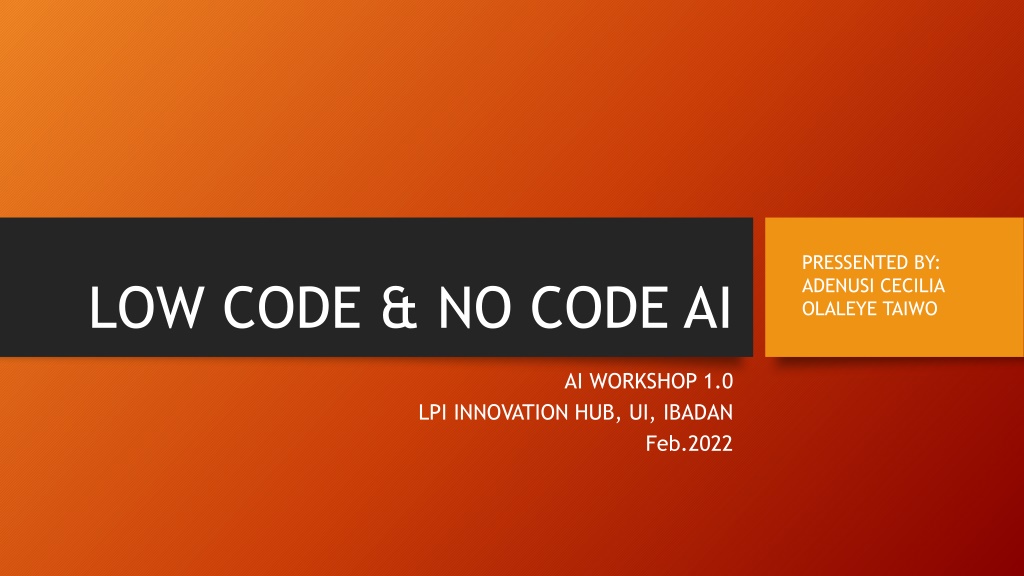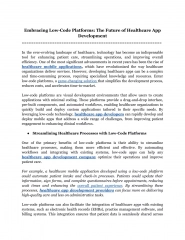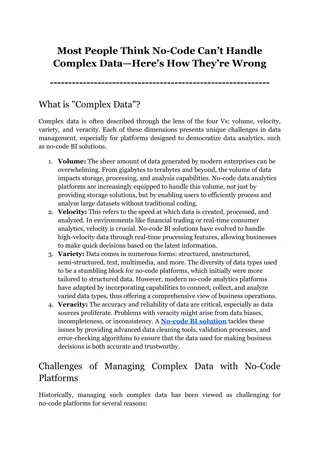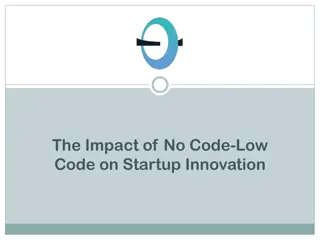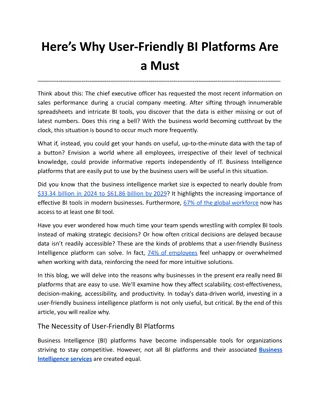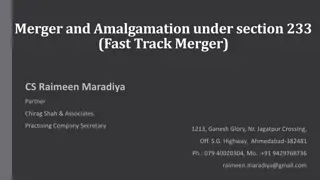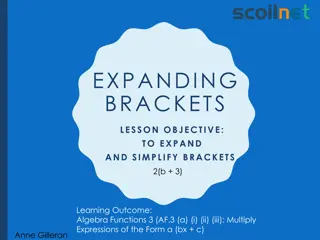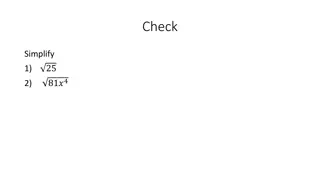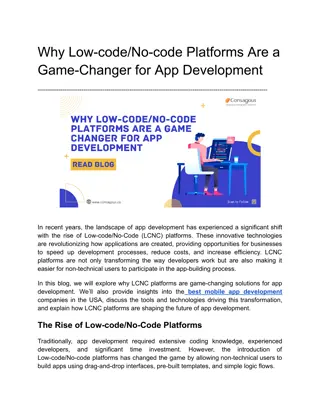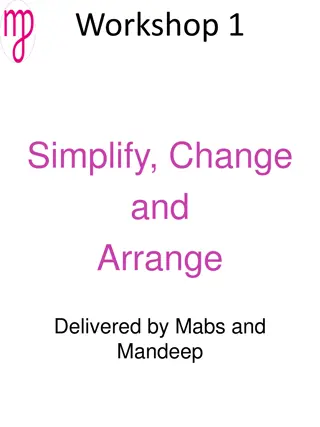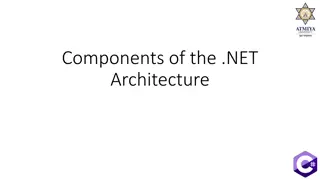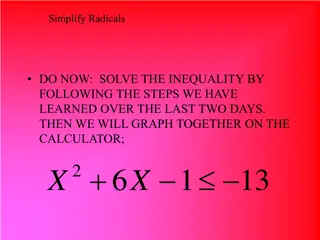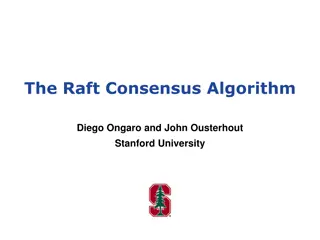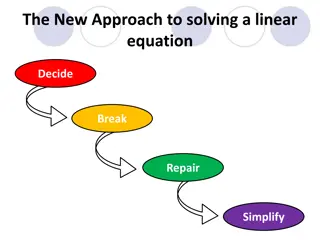Simplifying AI Development with Low-Code and No-Code Platforms
Explore the world of low-code and no-code AI development platforms, empowering experts to create applications with ease. Learn about the benefits, tools, and components of these innovative platforms, and discover popular AI tools for no-code development. Accelerate your digital transformation journey by leveraging these user-friendly technologies.
Download Presentation

Please find below an Image/Link to download the presentation.
The content on the website is provided AS IS for your information and personal use only. It may not be sold, licensed, or shared on other websites without obtaining consent from the author. Download presentation by click this link. If you encounter any issues during the download, it is possible that the publisher has removed the file from their server.
E N D
Presentation Transcript
PRESSENTED BY: ADENUSI CECILIA OLALEYE TAIWO LOW CODE & NO CODE AI AI WORKSHOP 1.0 LPI INNOVATION HUB, UI, IBADAN Feb.2022
WHAT IS LOW-CODE AND NO-CODE AI No-code AI: means using a no-code development platform with visual, code-free and often drag-and-drop interface to deploy AI and machine learning models. BENEFIT OF No-Code AI It empowers experts to develop apps Cost Savings Faster Technology adoption Help data scientists to focus on harder problems
Lists of AI Tools for No-Code AI Weka Data Mining: Weka is a collection of machine learning algorithms for data mining tasks. BigML: BigML is an open-source no-code tool that provides commoditised machine learning as a service for business analysts and application integration. DataRobot - DataRobot's automated machine learning platform makes it fast and easy to build and deploy accurate predictive models.
Clarifai AI Platform - Clarifai is a leading deep learning AI platform for computer vision, natural language processing, and automatic speech recognition. Akkio - Akkio is a simple, visual, easy-to-use platform that enables anyone to supercharge everyday sales, marketing, and finance tasks with the power of AI. Levity - It focuses on image, text, and document classification and enables users to train custom models on their use-case- specific data. Lobe is a relatively new but super easy model training app for image classification with object detection and data classification coming soon.
LOW CODE AI Low-code development - is a visual drag-and-drop- development approach that facilitates the delivery of applications by reducing hand-coding as much as possible. How does it work? Low-code development platforms enable traditional and citizen developers to create apps with pre-written codes and templates.
COMPONENTS OF A LOW-CODE AI Graphical User Interface (GUI) for programming: This drag & drop interface enables researchers or business users to define inputs and outputs and necessary operations Integrations for I/O: Most business data is stored in databases.Its offer interfaces to databases. An application manager: LCDPs provide tools to build, debug, deploy, and maintain low code applications so users can keep them up-to-date.
WHY USING LOW CODE PLATFORM Accelerate digital innovation and transformation Reduce current IT responsiveness Escape legacy debt Reduce depency on hard-to-hire technical skills Protect against technology churn backlog and increase
How is low-code different than no-code? No code platforms do not allow regular users to easily access and modify the underlying code of the app. Low code platforms provide easy access to the code and technical users tend to rely heavily on code as they roll-out low-code applications.
SOME OF THE LOW-CODE PLATFORM/SOFTWARE PyCaret: hundreds of lines of code with just a few words. Auto-ViML: It automatically renders your data through different machine learning models in order to discover which one gives the best results in each particular case. H2O AutoML: It has tools for deploying most widely used machine learning algorithms such as gradient descent, linear regression and deep artificial neural networks. is a low-code alternative that can replace
Mendix: Mendix is a mobile low-code development platform that is intended for the designing and development of mobile applications. Zoho Creator: Zoho Creator is a low-code application development platform that allows users to create custom applications on their own, with minimal coding experience.
